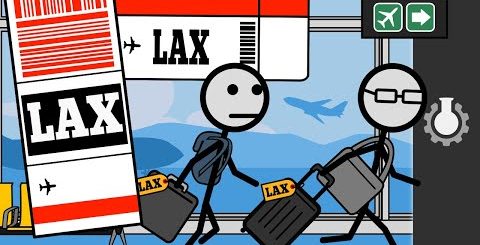Europe’s Experiment: Treating Trains Like Planes
Sign up for the CuriosityStream/Nebula bundle for just $14.79 a *year* to watch Extremities right when it comes out on August 4th: http://CuriosityStream.com/Wendover
Watch Jet Lag: The Game at http://youtube.com/jetlagthegame
Buy a Wendover Productions t-shirt: https://standard.tv/collections/wendover-productions/products/wendover-productions-shirt
Subscribe to Half as Interesting (The other channel from Wendover Productions): https://www.youtube.com/halfasinteresting
Youtube: http://www.YouTube.com/WendoverProductions
Instagram: http://Instagram.com/sam.from.wendover
Twitter: http://www.Twitter.com/WendoverPro
Sponsorship Enquiries: wendover@standard.tv
Other emails: sam@wendover.productions
Reddit: http://Reddit.com/r/WendoverProductions
Writing by Sam Denby and Tristan Purdy
Editing by Alexander Williard
Animation led by Josh Sherrington
Sound by Graham Haerther
Thumbnail by Simon Buckmaster








I know Ryan air is cheap, but it is so much worse than paying a little extra for a high speed rail train. Almost all HSR trains have free internet, cell service, double the leg room, and cafe cars. Not to mention the train starts in the centre of the city without stressfully tight security and luggage restrictions. I know some people are on a tight budget, but if you book train tickets early, they can be surprisingly cheap, and much better than air travel.
Cheap air makes sense when crossing water, but ideally when travelling over land trains are better. Although not always faster, the more relaxed0 experience and lower carbon output makes trains better.
Most US airlines nickel and dime you for additional things like checking in luggage (Southwest does not) and picking “premium” seats, which make the final ticket price much higher.
I don’t know much about rail, being from the Disappointing States of America. But I know that paying a bit extra for a better quality airline is a lot better than flying on Spirit. I don’t think I have personal experience with any other budget airlines
Also, very tangential bonus fact, my best flight experience ever was with Quantas. Even though the flight was about 16 hours, from DFW to Sydney, I still think it was the best experience I’ve had on a plane.
Reynolds’s air is much faster.
Sounds cool, leaves in the US
I think the Thalys service should’ve been mentioned in this video. It’s a french-operated train network that spans France and the neighboring countries Belgium, The Netherlands and Germany. Their trains are able to operate in the different rail standards of all countries seamlessly, avoiding any need for changing the locomotive at borders. This is part of an EU effort to connect Paris, Brusseles, Cologne, Amsterdam and London by rail, with dedicated border crossing tracks and guidelines on how trains have to work in order to operate in all countries.
@Lena Fox yeah, but you can get the flight for half that
@Walli Yes, but the electrical and signalling systems often are not the same.
Thalys basically killed air travel between Brussels and Paris! Should have been mentioned however Wendower focussed only on big countries!
@Lena Fox While I’ld love to use Thalys, it’s just too expensive. So it’s a car for me…
All of Western Europe uses the same gauge.
The absolute only thing that I am afraid of is that the high-speed network in Europe is going to be like buses in the UK. To travel from the outskirts of Manchester to the city centre, you have to get two tickets from two different bus operators with zero connectivity assurance. In Germany we have the trains which guarantee you arriving and we have so called public transport associations which bundle all different companies under one ticket. I want that for Europe’s international high speed rail network.
@Dustin M It already exists, it is called an interrail pass. The UK cannot be in a pan-European ticketing system as the EU would want to control it.
I mean, it’s the same thing to travel by air on a budget, so…
In france when you buy a ticket to go from fontainebleau to say, paris, it works even for the metro afterwards
so i’d argue it’d be easy to set up
There’s really some work to be done here! Just like using Öffi it shold be entirely clear what route and connections you need to take. Taking a train from Aachen to Ghent was kind of easy but taking it as a connecting train…jeez..
Japan solved this issue in Tokyo by offering users the ability to book a ticket across multiple companies and it works. What I really wish was mentioned in the video was the ongoing innovation in night trains especially what OBB is doing with their NightJet. With the price of a hotel room, one could travel comfortably across long distances and arrive well rested at their destination. This is a game changer no airline or HSR can compete with
I honestly cannot wait for a fully interconnected high speed rail network in Europe. It took me a full day of travel to get from Copenhagen to Bath, and that was on almost entirely high speed rail. Being able to get from say London to Barcelona entirely on high speed rail, even on a single ticket (not an interrail pass), would be the dream.
You have plenty of time to sort your ticket out on that day of travel. If time is an issue, take a flight.
Another factor that wasn’t mentioned is that airports many of the budget airlines use are much further away to the destination/departing city. Sometimes requiring an hour or more of Taxi or train. Airport security, baggage limitations, delays and cancelations make most routes better by train.
@Vincero Alpha evtol is already here… it will make busses… and trains… look like horse drawn carriages… look up a video called jetson one vs blackfly… you can already buy these craft
The problem with your statement is that many people don’t live around the railway stations from which international trains depart. International airports often have a much larger catchment area than let’s say St Pancras International. London has 1 station that offers international trains, and multiple airports that offer flights to anywhere you want.
@Tams80 well it depends on the quality of rail services. The UK rail network is appalling so there is little appeal. If you create a strong network of high speed rail lines that are reliable and high frequency then they are undoubtedly superior.
I think there are a few wrong assumptions in this video.
1. Europe did not choose to develop these networks, they mostly existed in some form or another. look at how Germany spends money on the road network compared to the train network. They are not developing much, they are barely maintaing a functional network.
2. Trains compete with Airplanes on Tourist flights. This is in my opinion the fatal flaw in this video. Most Countrys are trying to stop short-distance “hops” via planes and target buisness travelers. Here Rail comes into play. It makes sense to construct high speed rail between Frankfurt and Cologne since these are major buisness hubs. There was no incentive to interconnect these high speed segments further to London because that is already aircraft teritory (time-wise).
3. France is a bad example. Treat France like a gigantic hub-and-Spoke country. Want to get anywhere, better go through Paris. There are only a few interconnecting trains that leave out paris. Germany is a better example.
4. No advocacy for night-trains. Biggest advantage of rail. Enter a Train in Munich at 22:00 and wake up in Rome the next morning. Amazing!
The general terms and conditions apply (Trainstation closer to city than airport, Shinkansen to TGV/ICE is no fair comparision, and so on and so forth). I Agree that cross-Border-Rail needs to get better buit itinerarys are not the problem. A centralized Booking system is needed, that takes all operators into account and gives you one Ticket with full passenger-rights. Check out John Worth on Twitter and his corssBorderRail Project, very insightfull.
@PhilfreezeCH UK seems to use the French style metric. It’s annoying.
France is such a bad example that it has its own math problem, the French railway metric (German: Französische Eisenbahnmetrik). It demonstrates how there can be other possible metrics for pathfinding etc than the usual euclidean direct-route.
Paris already goes to Amsterdam, Stuttgart, Frankfurt, and others direct
Interesting prospects indeed. There are, however, some points more to consider:
– Half the passengers of the new companies switched operators. The routes these newcumbers sit on are the profitable routes. The state-owned companies on the other hand need to service both the popular and lower-demand lines which they finance with the profitable routes. If the service is not to be reduced the tax payer effectively needs to subsidise the profit of private companies.
– International rail connection: There are big legal barriers to cross-country rail travel. At each border the train driver realistically needs to be replaced because they need to be certified in each country and speak the local language. When traveling from Austria to Slowenia and then to Italy at both borders even the motor coaches were replaced for whatever reason.
The first point is a major problem and the reasenon I’m boycotting Flixtrain.
The second one will hopefully be solved soon by new EU laws. Especially for new HSR connections this could be critical.
There are also technical barriers. There are multiple different electricity systems in use, for example. From 1Kv DC to 25 KV AC, trains need to be able to handle it all. Also systems, that ensure safe operations of trains are different between nations.
So excanging trains on the border will continue at least mid-term.
A couple of corrections: It is possible to book by train Manchester to Paris and vice versa as one combined itinerary and Torquay is still a prosperous and popular holiday destination. A key omission was mention of the significant and well used international links provided by Thalys and OBB NightJet, which combine to understate rail’s importance in those markets.
Across Europe, long international journeys with one or more change en-route are still very commonly undertaken and need not only make use of the well known high speed lines. They are also much, much more straightforward than the normal airport torture. For this reason rail and in fact road transport also take a large share of journeys beyond the standard 3-4 hours commonly quoted, even on routes that have direct flights.
Even before using an airport became two to three hours of torture a surprisingly high proportion of the population really don’t like air travel that much and will happily both take longer and pay more to avoid it – in a way that is just too difficult in the US.
The huge volume of local road traffic across land boarders in densely populated areas makes the rail share of longer distance international journeys in Europe seem much smaller than its true significance.
“Torquay is still a prosperous and popular holiday destination”🤣🤣🤣🤣🤣🤣🤣🤣🤣🤣🤣🤣
It used to be possible to by a through ticket from Deutschebahn or Trainline International, but it isn’t any more.
Torquay is great!
holidaying in torquay atm 💀💀💀
Re connections, I remember there being an easy way to do it previously, but can’t seem to find it now, is there directions on how to do it? It was well advertised before, but now the Eurostar site seems to be targeted towards Continental connections from a brief look?
There is also a major flipside to rail privatization that i wish would have been mentioned in the video: Private companies will usually only run services on routes between major cities, while public rail operators also have to serve non-profitable routes to small cities and villages. This is why private companies can easily undercut the public rail operators in ticket prices and still be profitable. The loss in ticket sales to the public rail operators as a result of the new market competition can therfore be seen as a handout to the private competitors by the taxpayer.
That’s why all public service should be awarded by public competitions from 2023. If a private company offers a lower price (payed by the state) for service to small tows, it should run those trains, instead of the public train company.
@Walli The thing with airports is, not all of them actually run a profit, or rather they would not run a profit without assistance from local or state-level government. There are plenty of cases where they get big subsidies in one form or another to allow them to operate at a profit. This applies mostly to the smaller, less major airports.
@TohaBgood2 That makes sense. I had no idea that’s how it worked with airlines. Explains why those more remote routes aren’t necessarily high priced.
Thanks for the detailed explanation!
@erin mcdonald I mostly agree, certainly in this case. But I still have to mention that this isn’t black and white! Liberalization can be good or bad depending on the situation and how it is implemented. It isn’t intrinsically either. Except, perhaps, complete and abrupt liberalization of any closed system is probably always destructive and needs to always be phased in and controlled.
In this case the situation needs to be managed differently, sure. But I am convinced that it is the right thing to do and will lead to spectacular growth in electric rail transit in Europe. We meanwhile will stagnate alongside the rest of the world and continue burning dino juice with abandon!
They just need to uncouple the state rail operators as well! Then if/when they see that key routes are being abandoned for not being economical and overall connectivity is imperiled, that’s when they can offer an open subsidy to any operator willing to take the route.
That’s it! That’s how we currently do it with underperforming rural airports. Airlines literally get to bid on a subsidy to serve various small airports! It works surprisingly well! Most of the general public doesn’t even understand that this or that airport is directly and shamelessly subsidizing the airlines to land there!
I live in Austria near the tripoint with Germany and Switzerland and I use international trains here every day. They are excellent compared to almost everywhere else in Europe and only run by state owned railways (DB, SBB, ÖBB). On my daily commute I will use a ÖBB local train into Switzerland and there I can connect onto other swiss domestic services departing 3 minutes later. If I want to visit my family in Germany, I’ll take an austrian local train to the next larger station, where an international high speed train, coming from Switzerland and jointly operated by the three state owned companies, will take me to Munich where I can get a connection onto a DB ICE minutes later. That works because all three companies synchronize their schedules and offer joint tickets to everywhere in the respective countries. Flixtrain runs part of the route too, but they are never an option for me, because they just don’t integrate with the rest of the journey. They can do point to point, but they add zero value to the entire network.
Ouigo uses TGVs equipped for both France and Spain, but purely inside Spain. They waste vehicles that could be used for Paris to Barcelona services, which would be much better for the network, but probably don’t make as much money as domestic spanish routes. Or Trenitalia, who now run a service from Milan to Lyon minutes apart from an SNCF service, yet at the same time refuse to support the joint DB-ÖBB Eurocity connecting Munich to Verona. Sure, it may be profitable, but the outcome for the passengers could be much better, if instead of competing for money, the different operators would work together like they do between Germany, Austria and Switzerland.
And Flixtrain doesn’t really operate to Switzerland. Yes, the terminus station is Basel Badischer Bahnhof, which is on swiss territory, but owned and operated by Deutsche Bahn under german operational rules. Flixtrain wouldn’t even be allowed to continue to Basel SBB, because services that don’t integrate with the coordinated timetable and accept the swiss national ticket system are simply not allowed in the country.